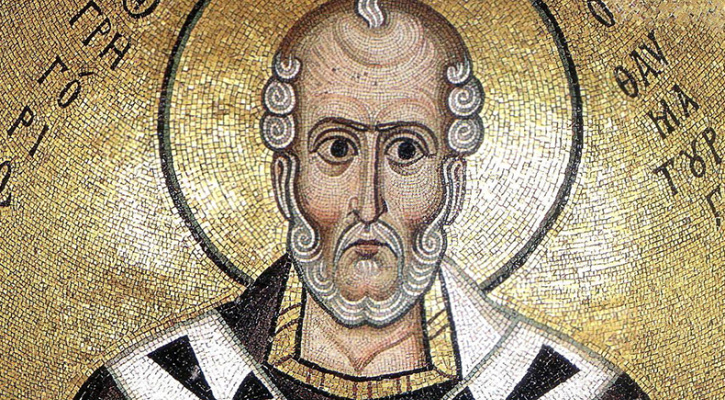Saint of the day for January 10: story of San Gregorio di Nissa

Saint of the day for January 10nd
(about 335 - 395)
History of San Gregorio di Nissa
The son of two saints, Basilio and Emmilia, young Gregory was raised by his older brother, Saint Basil the Great, and his sister, Macrina, in modern day Turkey. Gregory's success in his studies suggested that great things were ahead for him. After he became a professor of rhetoric, he was persuaded to dedicate his culture and his efforts to the Church. Since then married, Gregory has continued to study for the priesthood and became ordained (this at a time when celibacy was not a matter of law for priests).
He was elected Bishop of Nissa in 372, a period of great tension for the Arian heresy, which denied the divinity of Christ. Arrested briefly after being falsely accused of misappropriating Church funds, Gregory was returned to his seat in 378, an act received with great joy by his people.
It was after the death of his beloved brother, Basil, that Gregory truly became his. He wrote to great effect against Arianism and other questionable doctrines, earning a reputation as an advocate of orthodoxy. He was sent on a mission to counter other heresies and held a prominent position at the Council of Constantinople. His fine reputation stayed with him for the rest of his life, but over the centuries it gradually diminished as the authorship of his writings became less and less certain. But, thanks to the work of XNUMXth century scholars, his stature is once again appreciated. Indeed, St. Gregory of Nyssa is seen not simply as a pillar of orthodoxy, but as one of the great contributors to the mystical tradition in Christian spirituality and to monasticism itself.
Reflection
Orthodoxy is a word that can raise red flags in our minds. For some people it can connote rigid attitudes that leave no room for honest differences of opinion. But it could also suggest something else: faith that has settled deep in one's bones. Gregory's faith was like that. His faith in Jesus was so deeply rooted that he knew the divinity denied by Arianism. When we resist something that is offered as truth without knowing exactly why, it could be because our faith has settled in our bones.